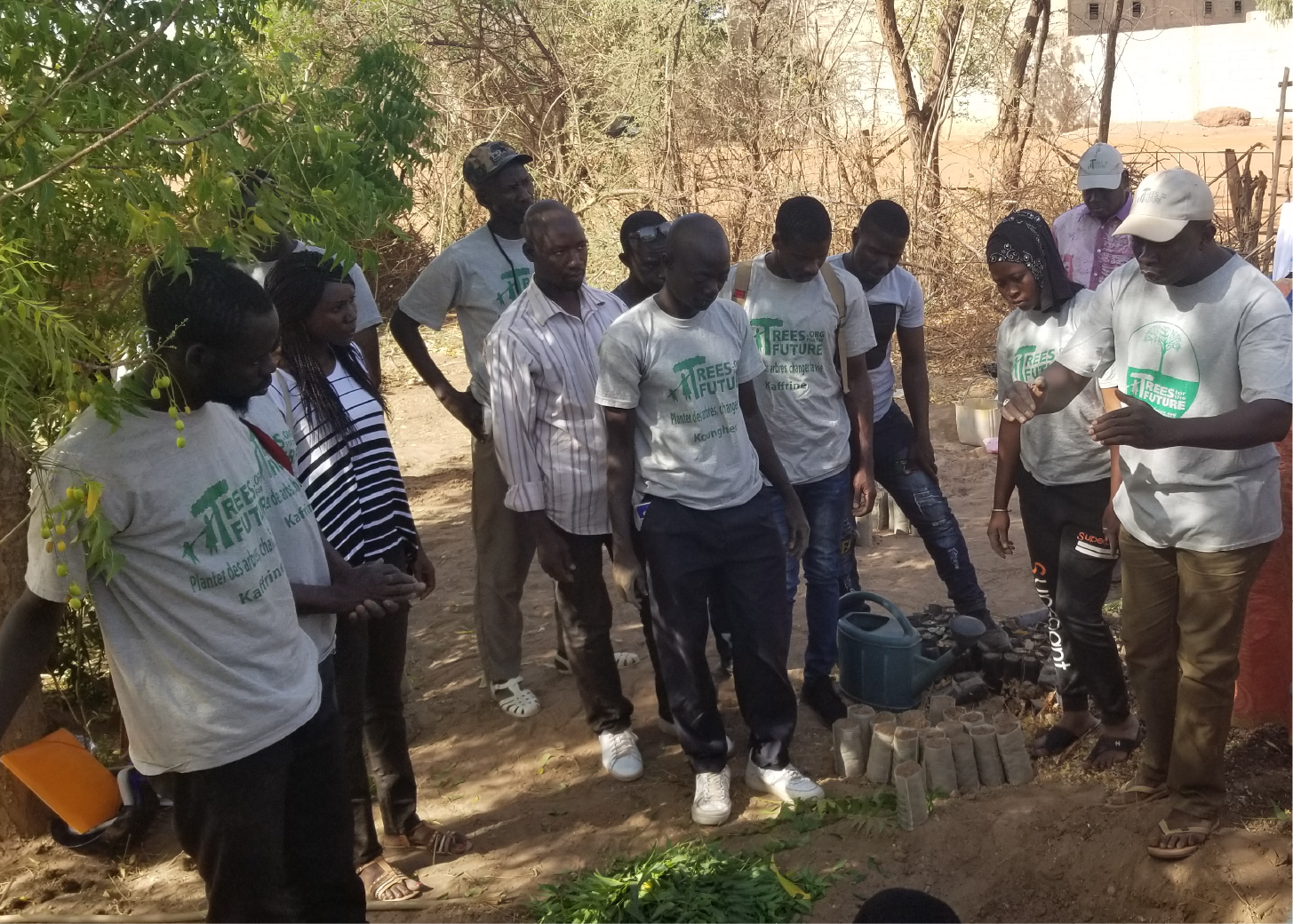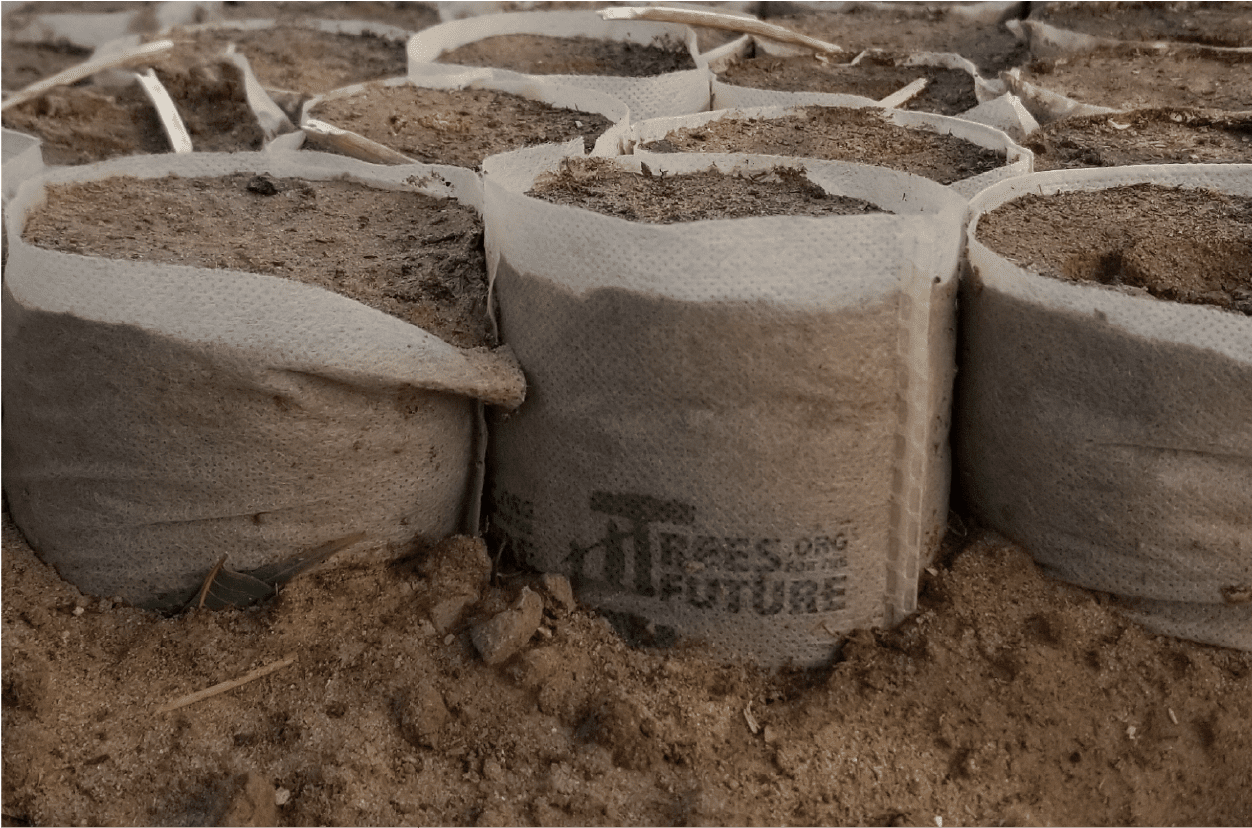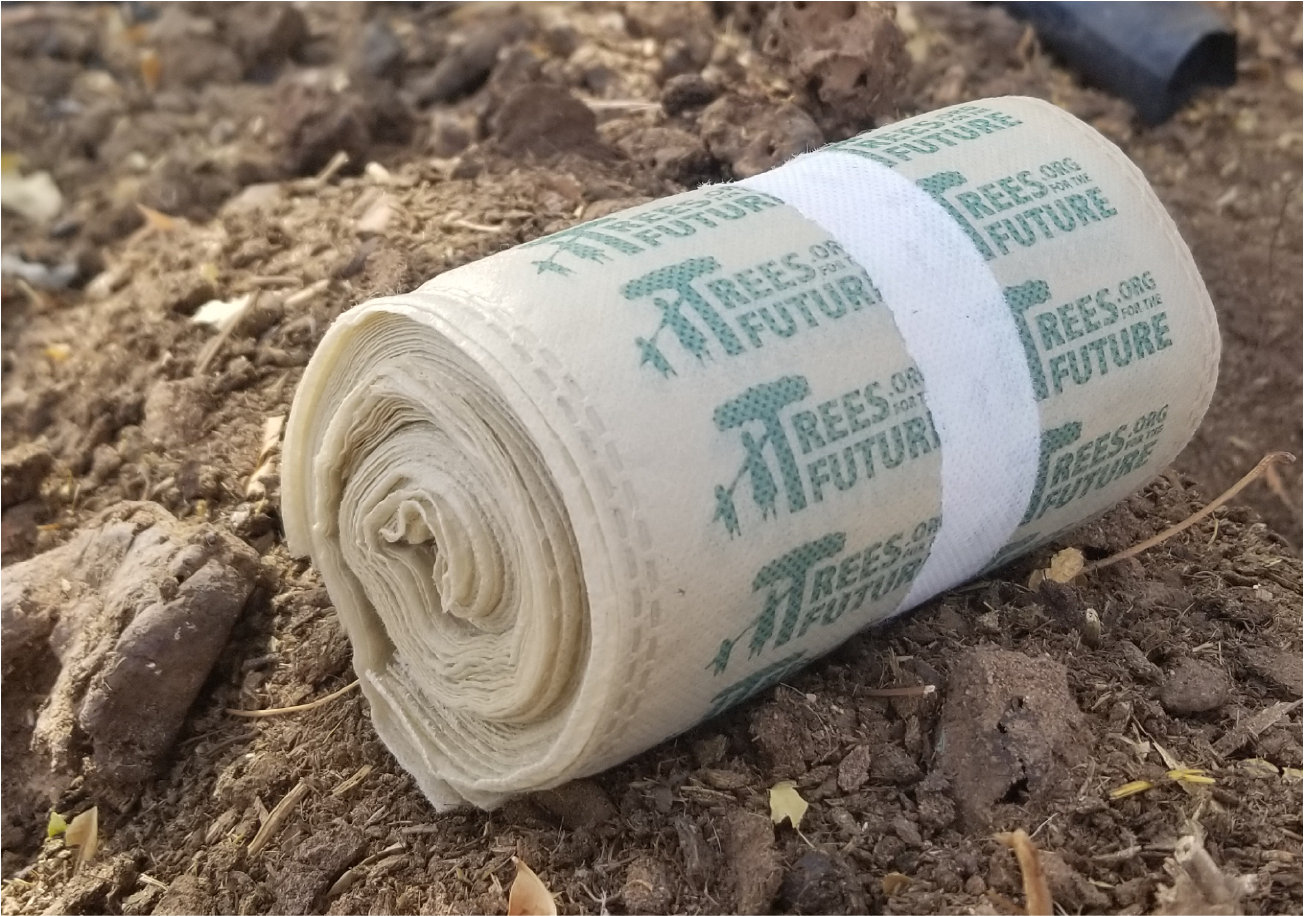
“I think all tree planters feel some level of guilt when we have to discard that small piece of plastic as we plant each tree in the ground,” says Trees for the Future Programs Director Brandy Lellou. “You can argue that we’re using the plastic for something that will help the environment, but when you know that most plastic finds its way to the oceans; it is a problem that cannot be overlooked. With laws that ban plastic bags now in place, it has opened up alternative markets for biodegradable products and is enabling real, exciting change in the system.”
Trees for the Future works with smallholder farmers in Sub-Saharan Africa, implementing sustainable agroforestry practices to help farming families plant themselves out of hunger and poverty. By strategically planting trees and other crops, their Forest Garden Approach improves biodiversity, crop production, nutrition, and incomes.
Why plastic to begin with?
A key component of Trees for the Future and farmer success is their use of effective planting methods, that includes establishing nurseries to ensure plants can thrive. Instead of sowing seeds directly in the ground, farmers across climates will typically start seeds in nurseries to give them a better chance at survival. Tree seeds are planted in individual sacks, commonly known as polytubes. Thousands of cylindrical plastic sacks are filled with nutrient-rich soil, sowed with seeds and protected in a nursery. Once the seeds germinate and mature into sturdy seedlings capable of facing the elements, the farmer cuts the plastic away and plants the seedlings in the ground where they will grow to full maturity. The plastic is thrown away as it is no longer usable.
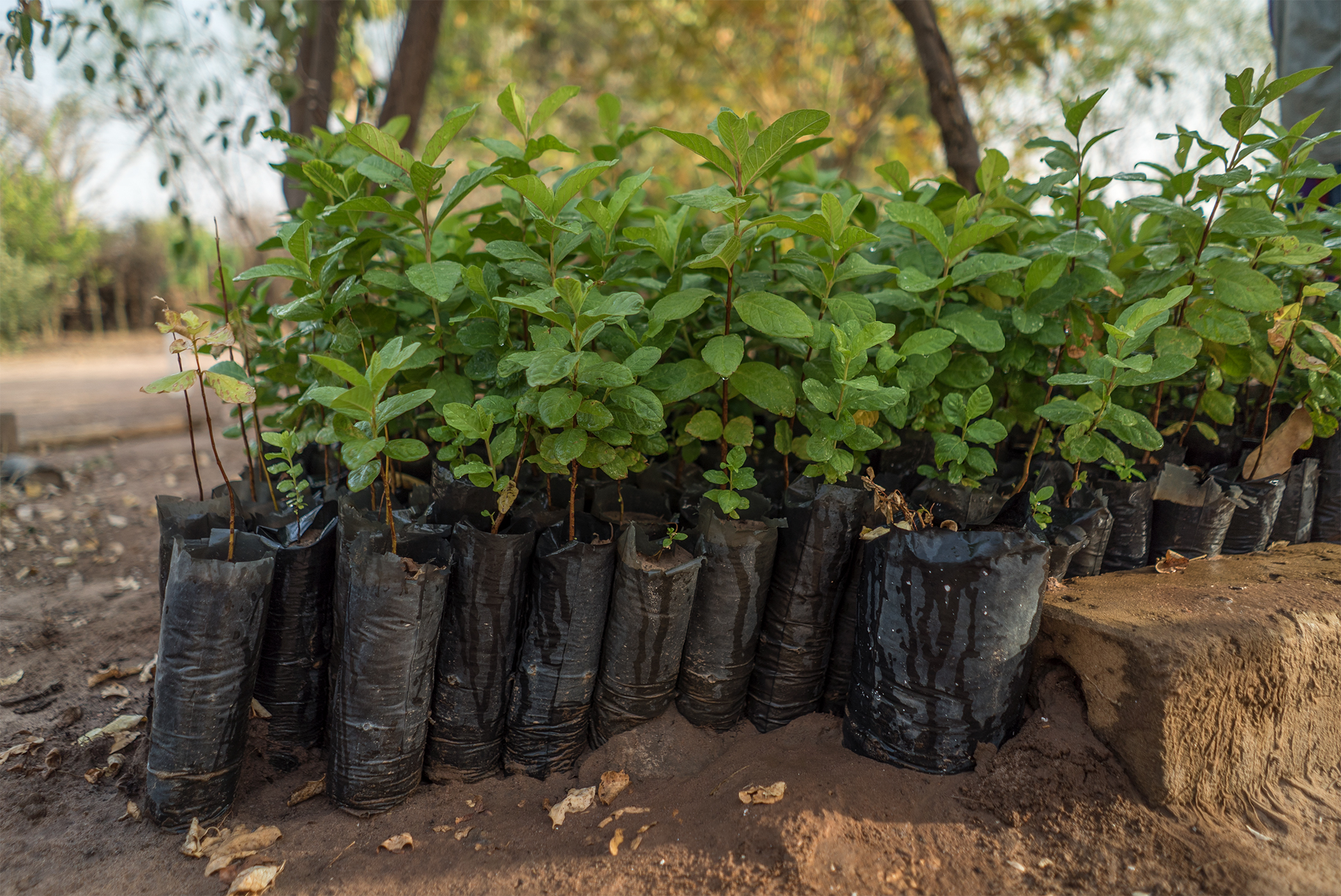
“We understood this wasn’t a sustainable option, especially for an organization that is trying to help the planet,” says Lellou. “Several years ago we started looking for alternatives to plastic, ideally organic materials that can break down in the ground. However, at the time biodegradable bags were cost prohibitive – averaging $1/bag, 10 times more than our entire cost of planting a tree.”
The New Normal
In 2016, Senegal and Cameroon banned the use of plastic bags – opening up a market and cost effective option for the introduction of biodegradable tree sacks in Trees for the Future’s West Africa projects. The plan was to continue exploring eco-friendly options in the organizations’ East Africa program countries – Tanzania, Uganda, and Kenya – but implementation took on a new timeline when Kenya introduced a plastic ban at the end of 2017.
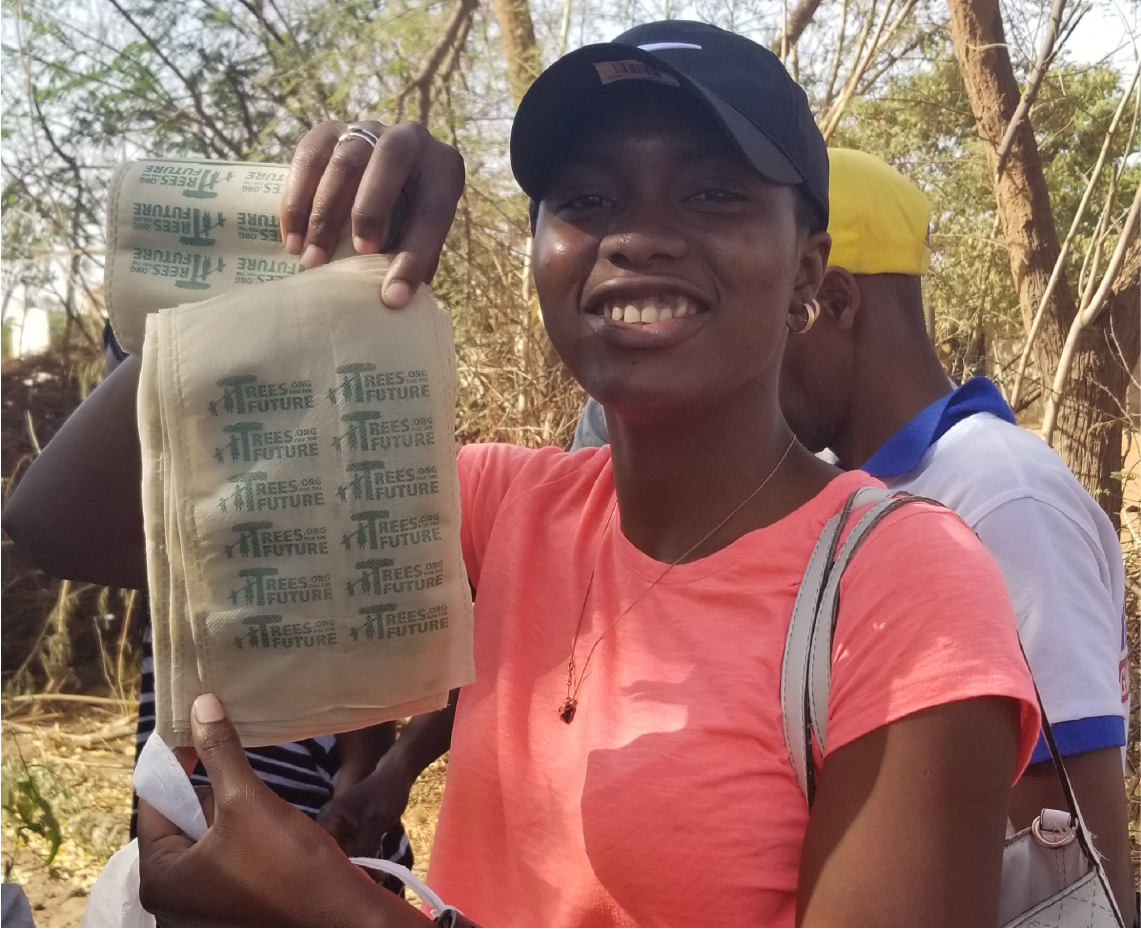
The Kenyan plastic ban is even more strict than that in Senegal and Cameroon and applies to production, sale, and possession of plastic and carries a maximum penalty of four years in prison and/or a $40,000 (USD) fine. The strict law is already having visible effects on the amount of plastic in Kenya and that extends to tree planters. Where organizations like Trees for the Future were previously restricted by cost-prohibitive cloth sack providers, the plastic bag ban has let to a surge in biodegradable options.
“This is a monumental time for tree planters around the globe,” says Lellou. “At Trees for the Future we are always pushing ourselves to be better and find new ways to improve the areas where we work, so we’re very excited to be adding biodegradable tree sacks to the list. We hope they’ll soon be the norm for all tree planters.”
This month, Trees for the Future purchased 7 million biodegradable cloth bags. With bulk purchasing now an option, the price is comparable to the previous plastic option. Before, cloth bags cost about a dollar a piece, the bulk purchase came in at about $0.025 (USD) a bag.
“There is talk of other East African nations following Kenya’s lead with similar plastic bans,” Lellou says. “Nothing official yet, but because we now have this low-cost cloth bag supplier in Kenya, we were able to make the decision to purchase biodegradable bags in Kenya and ship to our other East Africa program countries – Uganda and Tanzania.”
The 7 million biodegradable bags are expected to cover the majority of Trees for the Future farmers’ needs through the end of 2019. An estimated additional 6 million tree seeds will be planted in bare root beds, a common practice with appropriate species.
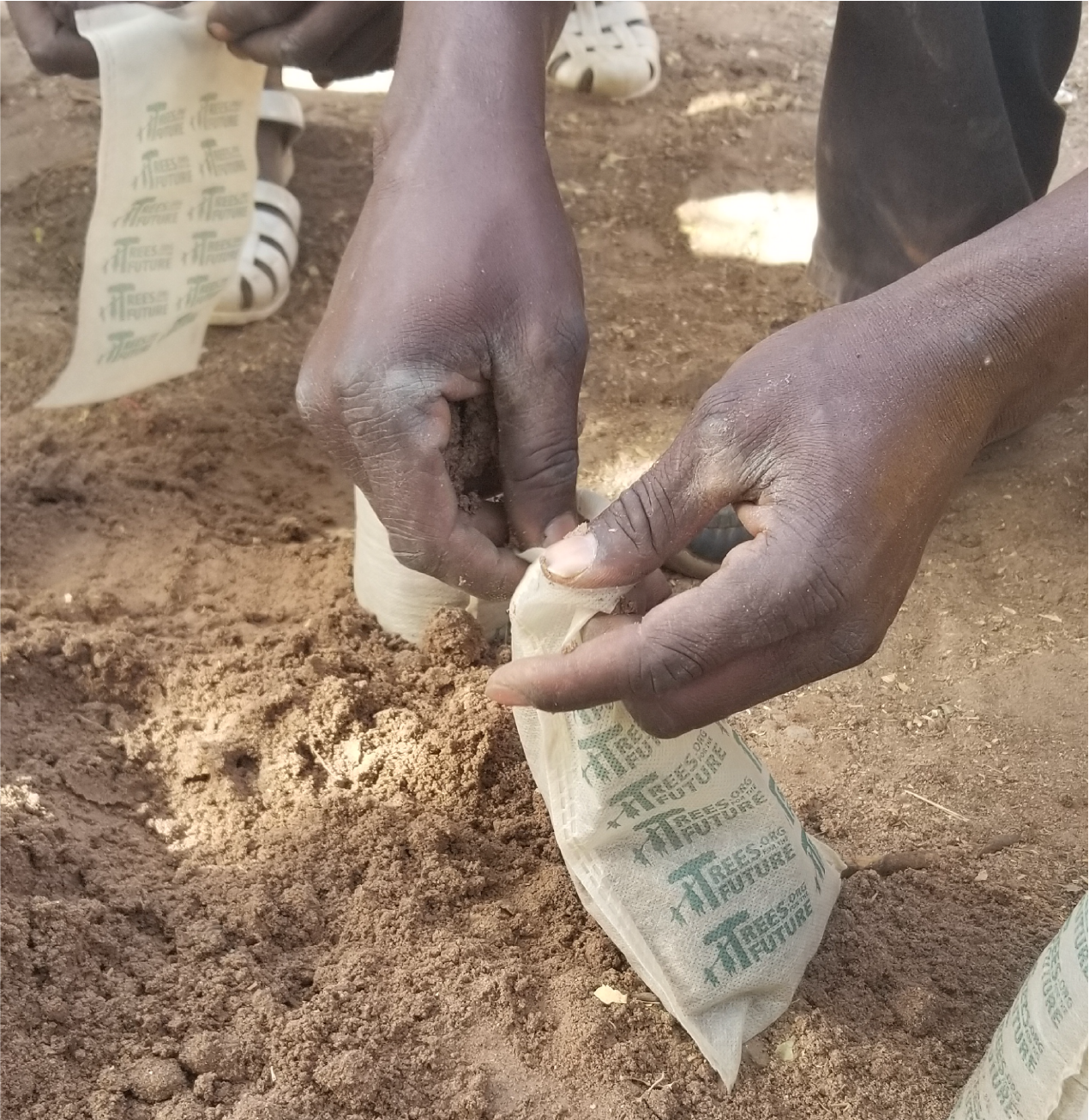
Farmers and organizations have noted that the the more porous cloth material of biodegradable sacks does not hold moisture in as well as plastic. However, the cloth sacks reduce root damage when the trees are moved outside because they’re planted directly in the ground with the plant as opposed to being cut away.
“There are costs and benefits to both options, but it was important to us, as an organization, to explore more environmentally friendly options in our programs and Senegal, Cameroon, and Kenya’s bans certainly helped to pave the way,” Lellou says. “We improve biodiversity, reduce deforestation, and sequester carbon from the atmosphere. Now, we no longer contribute to single use plastic waste.”
As Trees for the Future’s programs continue to grow, the organization plans to implement biodegradable tree sacks in all future projects.
